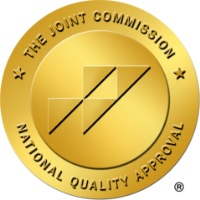What Makes Client-Centered Therapy Different?
When someone tells you that they’re in therapy, what comes to mind? Many people assume that a standard therapy session involves a person lying on a couch and pouring out their feelings to a therapist. However, therapy comes in many different formats. You might be surprised to learn that person-centered therapy has the client taking the lead rather than the therapist. In other words, the client is seen as the expert in their life, capable of making meaningful changes.
In person-centered therapy, the relationship between the client and the therapist is still very important. The therapist works on building a relationship so that the client feels comfortable exploring their feelings. They also listen, show empathy, and communicate back to the client through reflective listening. But ultimately, the client is in the driver’s seat, taking the lead, and the therapist is guiding them toward resolution.



Person-Centered Therapy at East Point Behavioral Health
Person-centered therapy is one of the many treatment options offered at our facility. This therapy has helped many individuals develop a healthy mindset and take an active role in their recovery. It is effective as a type of therapy that can be applied to many different contexts, including substance use, low self-esteem, and anxiety or depression.
The therapists at East Point Behavioral Health are professionally-trained in person-centered therapy and know how to help clients understand their current situation. They work hard to create a safe environment where they can gather insights into your past experiences. After all, your background contributes to your current beliefs and behaviors, though you may not be aware of them.
Moreover, our therapists will accept you without any bias or judgment. We listen closely and work with you to put together viable solutions and problem-solving strategies. This approach ensures that you remain at the center when making decisions. While client-centered therapy is collaborative, our therapists are here to help guide you, not instruct you on what to do. This approach allows you to take charge of your own life.
The Three Core Principles of Person-Centered Therapy
Both individual and client centered group therapy involve a non-directive approach, active listening and reflection, and a focus on the present moment. These three principles make this possible.
- Unconditional positive regard
- Congruence
- Empathic understanding
Let’s look closer at what each principle means and how they support the healing journe
Unconditional Positive Regard
Unconditional positive regard is a foundational concept in person-centered therapy. It refers to being fully open and respectful of the client. No criticism or judgment is allowed. As part of a therapist’s unconditional positive regard, they must also have a genuine interest in learning about your experiences and providing an environment where you can share whatever you want.
Another aspect of unconditional positive regard is that the therapist cannot offer their own advice or feedback on how you live your life. Even if they feel negatively toward your lifestyle, they must still accept you for who you are. If you sense that the therapist is not accepting of your lifestyle, it could cause you to hold back, thwarting your growth and healing.
Congruence
Congruence refers to the therapist being genuine and authentic in their interactions with you. In other therapeutic settings, the therapist takes a more neutral stand, allowing you to gain insight into your thoughts and feelings. However, in client centered group therapy, the therapist should act normally and even show their personality, just as they would in everyday interactions. By being open and transparent, you and your therapist are able to build trust.
Empathetic Understanding
Empathetic understanding refers to the ability to deeply understand and share the emotional experience of another person. In person-centered therapy, the therapist puts themselves in your shoes to help you feel heard, accepted, and understood. This creates a safe environment for exploration and growth. To be effective at empathetic understanding, your therapist must practice active listening, reflect back on what you have told them, and be able to see the world from your perspective.
How Person-Centered Therapy Works
To see the most results from client centered therapy, our therapists follow the principles of positive regard, congruence, and empathetic understanding. They also take things a step further and incorporate a number of additional techniques and strategies to achieve the best results:
Setting boundaries:
Clear boundaries are crucial for person-centered therapy. This allows for an appropriate, healthy relationship between you and your therapist. Some of the boundaries you may want to set include the length of each session and the topics you are willing to discuss.
Active listening:
Client-centered therapists must utilize active listening skills throughout each session. They have to pay close attention to what you are saying. Otherwise, they may have trouble understanding your thoughts.
Personal Experiences:
With person-centered therapy, the client is in charge. They are the experts. This is why our therapists allow clients to share their personal experiences without disruption.
Having a positive tone:
Positivity is an important attribute for person-centered therapists. A positive tone of voice can be an effective way to encourage clients to openly communicate. Being able to control the conversation also helps. If necessary, ask your therapist about taking short breaks or slowing down the conversation’s pace.
Staying calm:
In some cases, negative emotions can be outwardly expressed by a client. They can be angry at themselves, at others, and even at their therapist. It’s important for your therapist to remain calm and in control of their emotions.
Providing additional assistance:
Person-centered therapy is an effective treatment method. However, it is also your therapist’s job to identify when other therapies are required. Fortunately, East Point Behavioral Health is able to provide these additional services concurrently.


Who Is Person-Centered Therapy Designed to Help?
Many people can benefit from person-centered therapy, including those who have:
- Substance use
- Panic attacks
- Phobias
- Relationship problems
- Post-traumatic stress disorder (PTSD)
- Depressive disorders
- Trauma disorders
- Eating disorders
Client-centered support groups for trauma survivors, in particular, show great results, as they help survivors feel like they control their narrative. This is why our PTSD treatment center regularly incorporates client centered group therapy.
Another frequent implementation of person-centered therapy is in online therapy for anxiety disorder, as there are many benefits of client-centered group therapy for anxiety.
Client-centered therapy is also a suitable route for those who are usually opposed to standard therapy. Our client-centered therapy techniques create a more positive environment for those who are fearful of criticism or judgment. You have control over the conversation by leading it, while the therapist’s role prevents them from actively assessing what you say.

Get Support Anywhere with Online Therapy
We live fast-paced lives, often missing time to dedicate to our healing journeys. To contribute to resolving this issue and ensure you get mental health support regardless of where you are, we offer virtual therapy programs, including online client centered group therapy.
Here are just a few main benefits of online psychotherapy:
- Accessibility: East Point Behavioral Centers’ online programs make treatments accessible, whether you live in a remote area far from a mental health center, have mobility issues, or simply prefer an online setting.
- Privacy: Accessing mental health treatments from anywhere in the world means you’re in charge of your privacy. If you choose to connect from the comfort of your home, you can ensure complete privacy from the outside world, allowing you the freedom to express yourself without fear of judgment.
- Flexibility: Online mental health programs offer a higher degree of flexibility, both in terms of where and when you are connecting. They can fit in your daily routine and busy schedules with more ease, as they do not require transportation, parking searches, or adaptations of your schedule.
The Benefits of Client-Centered Therapy
Client-centered therapy is a supportive, non-directive approach that empowers individuals to better understand themselves, especially when facing emotional challenges, relationship issues, low self-esteem, or recent stress and trauma. Focused on the present rather than the past, this therapy helps you develop self-awareness and confidence without relying on a therapist for answers. You’re not a patient seeking a cure – you’re a client finding your own path forward.
It can be used on its own or as part of a broader treatment plan, such as online ADHD treatment. Its flexibility and emphasis on personal growth make it suitable for many people and situations.
Key benefits include:
Improved Self-Awareness
Person-centered therapy provides a non-judgmental environment where you can perform self-exploration. It’s easier to understand your thoughts, emotions, and behaviors when you are open and honest about yourself.
Greater Trust in Yourself
By performing self-exploration, you’re able to learn more about who you are as an individual and what you want out of life. This naturally increases the trust you have in your ability to make smart decisions.
Healthier Relationships
When you trust your abilities and decision-making, you become a better friend, family member, colleague, and community member. Your improved viewpoint can also help you better understand how others perceive your interactions.
Better Ability to Express Your Feelings
In order for our client-centered therapy techniques to be effective, you must be able to express your thoughts and feelings. This is done in a controlled setting where you won’t feel criticized or judged. As you feel empowered to explore and share your feelings freely, you can connect with your emotions, grow, and heal.
Letting Go of the Past
Holding onto the past can prevent personal growth and negatively affect your mental and emotional well-being. This is why it’s important to let go of the past and move forward, something that you will work on in client-centered therapy.
Why Choose East Point Behavioral Health?
There are many reasons to choose East Point Behavioral Health as your trusted partner in achieving mental well-being. Here are a few to highlight.
- We are experts in client-centered therapy. Years of experience and dozens of satisfied clients testify to our knowledge and skill in treating various mental health conditions by relying on person centered therapy treatment.
- Our team consists of licensed Massachusetts clinicians. Our staff members are both knowledgeable and generally caring, ensuring you get the best possible care.
- We offer both in-person and virtual sessions to work on your mental health. We understand the challenges of modern life, which often do not allow for in-person treatments. Therefore, we offer telehealth services, ensuring you can access our treatments and programs from the comfort of your home.
- We foster a philosophy of compassionate care, which helps us build strong relationships that support your healing and growth.

Getting Started with Client-Centered Therapy in Massachusetts
Be your own salvation. Reap the benefits of client centered group therapy, and by telling your own story, change it for the better. Therapists at East Point Behavioral Health can support you in understanding and accepting yourself, as well as finding inner strength to overcome any mental health struggles. Call us and let your healing journey begin.
Frequently Asked Questions
How is client-centered therapy different from cognitive behavioral therapy (CBT)?
Client centered therapy, and especially client centered group therapy, focuses on empathy, authenticity, and unconditional positive regard to help you heal. It emphasizes your experiences and the inner wisdom you developed. Cognitive Behavioral Therapy (CBT), in contrast, is goal-oriented and follows a more structured approach. This therapy helps you challenge and reframe negative thought patterns to support healing.
Can I switch to client-centered therapy if I’ve tried other approaches before?
Yes. Many individuals turn to client centered treatment after trying other modalities. The non-directive approach it fosters makes person centered therapy treatment a pressure-free and judgment-free treatment, helping you feel heard and supported.
How long does it usually take to see progress with this type of therapy?
Each recovery journey is unique, making it difficult to assess how long it will take for you to notice progress. Many of our clients start feeling more self-aware and emotionally safe within the first few sessions. Your progress will depend on the level of comfort, trust, and consistency in attending client centered group therapy.
What kind of issues can’t be addressed through client-centered therapy?
Although client-centered therapy provides excellent results, it might not be a perfect solution for everybody. Those struggling with severe psychiatric conditions or crises could benefit from a more structured treatment and intensive care that this approach does not offer.
Can I combine client-centered therapy with medication or other treatments?
Absolutely. The best results are often achieved with the combination of medication, psychotherapy, and other therapeutic approaches. Holistic care and a whole-person treatment ensure long-lasting results.






